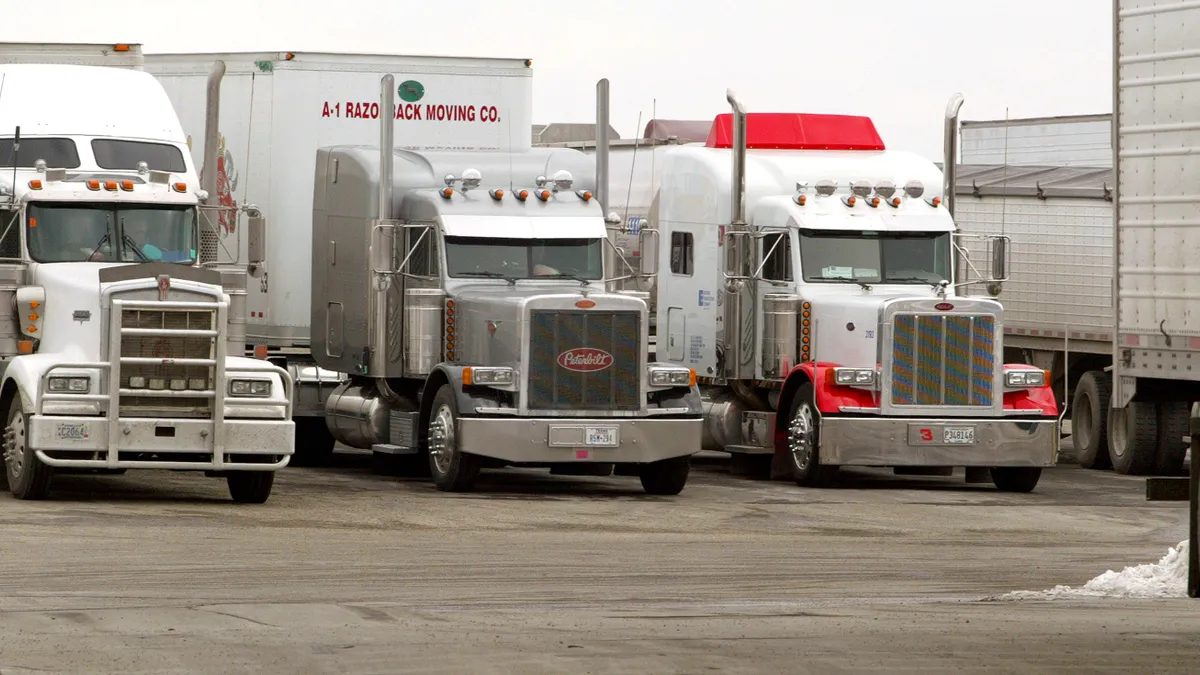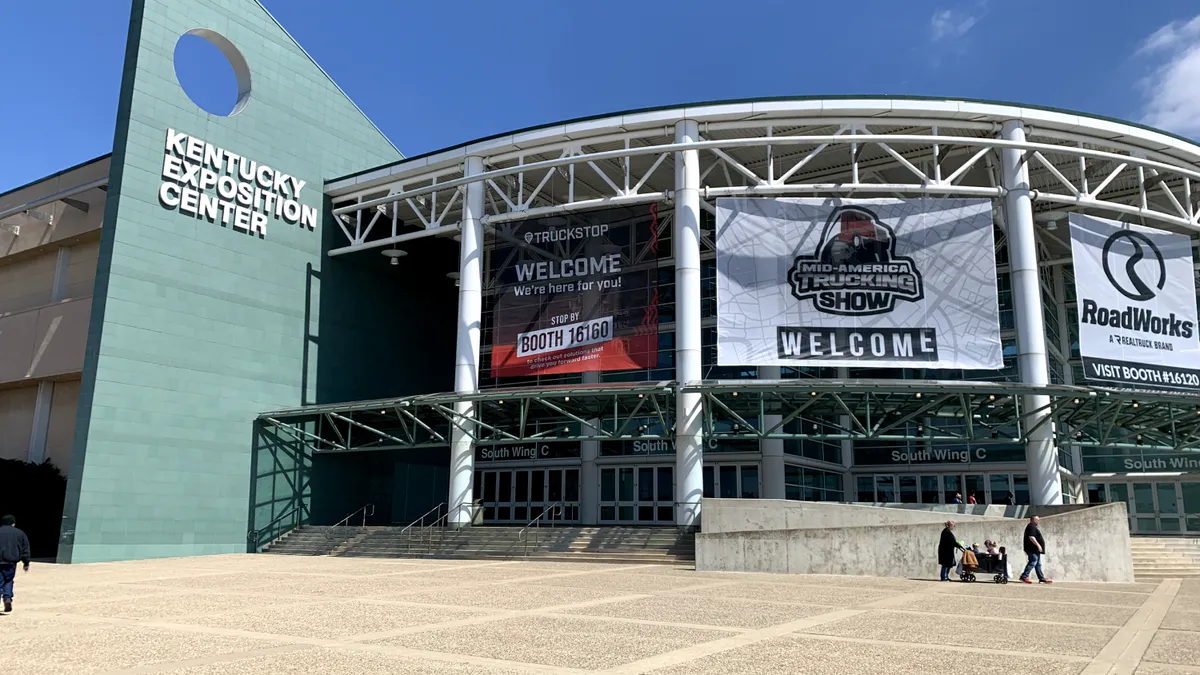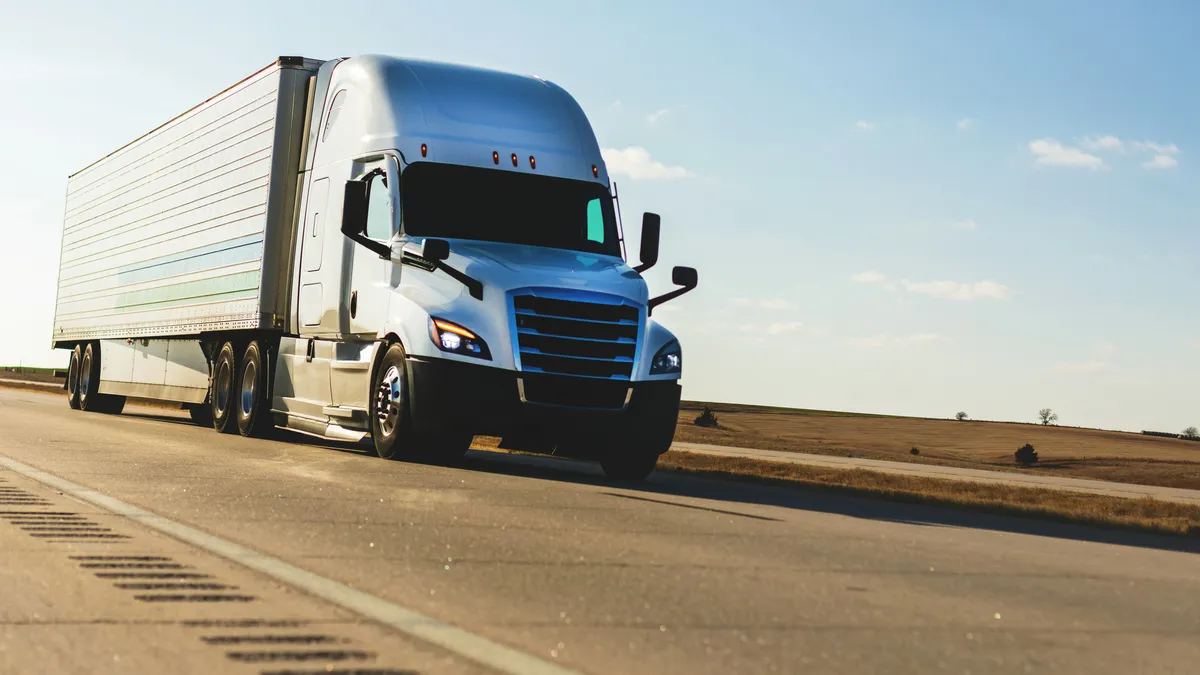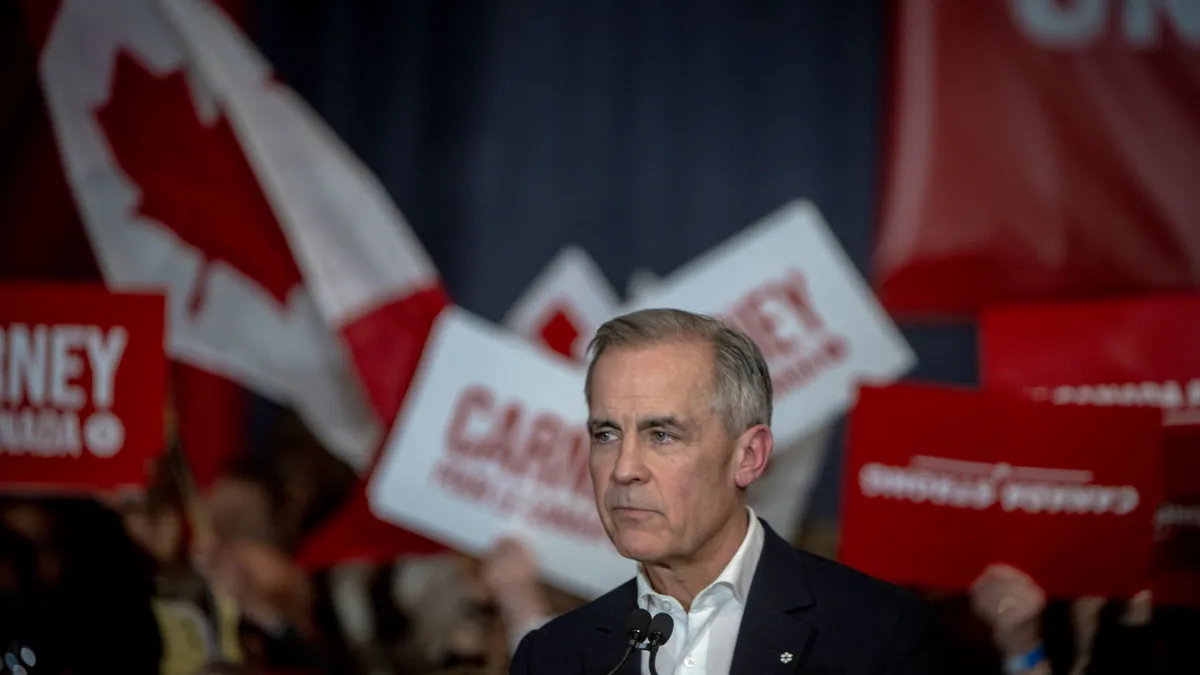This is a contributed op-ed written by David Powell, vice president of relocation services at Montway Auto Transport. Opinions are the author's own.
The truck driver lifestyle is already demanding. And then the pandemic shook the supply chain to its core. The safety hazards and overall challenges with ensuring driver safety don't help.
We work with a carrier network of over 15,000 to arrange local and cross-country moves for individuals, relocation management companies, auto dealers and other corporate clients. One of the biggest frustrations our driving partners face is finding ample safe parking along the most- and least-traveled routes in the U.S.
Not knowing when and where to safely take breaks can be stressful and dangerous for drivers, delaying deliveries for our customers.
Safe parking for truck drivers is about keeping drivers safe and making their jobs less dangerous. That's why lawmakers on Capitol Hill must increase access and availability of safe parking in the upcoming infrastructure bill.
Inadequate parking is a driver repellant
Improving truck parking could help attract new drivers to the industry and insulate our supply chain.
In any industry, people look at a job in its totality — if it offers good benefits, if the schedule works for their families, if it's something they can do long term. Providing safe and available parking while on the road is one way to eliminate one of the negatives.
Some drivers are looking to take jobs on predictable, regional routes. Additionally, drivers are flocking to last-mile delivery companies — like Amazon — where jobs are less risky and offer local routes with more predictable time at home.
To compensate for the shortage of talent, trucking companies are offering higher wages to retain current drivers or attract drivers from other companies. Ultimately, the cost of increased wages will be passed onto the consumer, impacting nearly every consumable good at grocery stores and gas stations, as well as furniture, apparel, electronics, appliances and cars.
"Safe parking for truck drivers is about keeping drivers safe and making their jobs less dangerous."

The problem is not all companies can pass costs as easily onto consumers. The vast majority of transportation companies are small or medium-sized businesses that cannot offer competitive wages like larger companies. Nor can they stay competitive with increased transport costs.
Adequate truck parking also has the potential to improve driver safety during federally mandated rest breaks. Increasing the availability of parking helps fleets preplan dedicated rest breaks throughout national routes.
Today, especially along less-traveled highways, drivers are at risk of missing break and rest areas due to congestion, parking in unsafe areas, risking traffic tickets, and more. Increasing parking availability makes driving less dangerous, which is a major industry inhibitor for driver retention.
Proving the lack of parking
If there are not enough available truck parking spots along the highways, the safety of both truck drivers and the public are at risk. The reasons for this are twofold.
Firstly, limited parking capacity encourages driving past the limits. While operations do their best to plan routes with safe parking, unexpected slowdowns can disrupt parking-location planning. If the driver can't reach the next stop without surpassing the eight-hour limit, they may feel compelled to continue driving.
"It's time to act and add this to the infrastructure bill in a fiscally responsible way that benefits the economy."

Secondly, truck drivers might be forced to park at unsafe locations, such as on the shoulder of the road, vacant lots or in illegal spots. This puts their safety and that of the general public at risk as well, and drivers following the eight-hour restrictions could be subject to fines for illegal parking by police officers.
The federal government has spent years looking at this issue. A survey conducted in 2019 as part of Jason's Law, adopted in 2012, found that 98% of truck drivers reported difficulties finding adequate parking.
Studies, including that survey, have provided the raw data necessary to inform future legislation and advocacy concerning this issue. It's time to act and add this to the infrastructure bill in a fiscally responsible way that benefits the economy.
Time for lawmakers to act
Parking has also come into focus recently. The U.S. House of Representatives reintroduced the Truck Parking Safety Improvement Act in March to directly address this issue by allocating $755 million to assist with the funding necessary to build more truck parking.
The bill has bipartisan support in addition to the approval of several major trucking associations. It is set to be further marked up by House leaders in time for consideration and integration with the major infrastructure bill, whatever its potential future iteration.
And then there's the American Jobs Plan, President Joe Biden's infrastructure proposal. Although it offers trillions of dollars for traditional infrastructure improvements and more, the plan does not explicitly allocate funds toward truck parking. America is long overdue for infrastructure improvement, but the overall infrastructure bill should be reviewed to focus on investments that will improve the economy in a fiscally responsible manner.
"A national economy is only as strong as its trucking industry."

Repairing roads and bridges is a great start as it will help reduce bottlenecks, the need for reliable, safe parking and other issues facing the trucking industry should be brought to the forefront, as well.
Senate Republicans offered an alternative multi-billion-dollar infrastructure bill that, according to Chris Spear, President and CEO of the American Trucking Association, is "more in line with the trucking industry's critical priorities." Meanwhile, Todd Spencer, President of the Owner-Operator Independent Drivers Association, has recently asked Transportation Secretary Pete Buttigieg to include truck parking in the final infrastructure bill, using the Truck Parking Safety Improvement Act as a guide.
A national economy is only as strong as its trucking industry. Improving driver safety by increasing the safe parking capacity and access to truck parking are key to sustainability.
To submit an opinion piece for publication on the Transport Dive website, please visit https://www.transportdive.com/opinion/submit-opinion/ and view our guidelines and submission form.




















